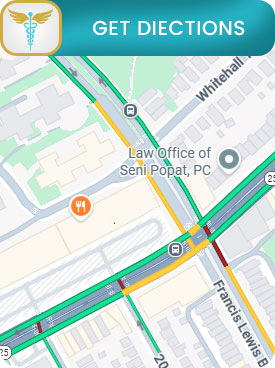Depression Treatment Clinic in Queens, NY
Depression is a common yet potentially harmful mental health condition. It causes significant symptoms that impact how a person feels, thinks, and goes about daily tasks like sleeping, eating, and working. The symptoms of depression must be present for at least two weeks for a diagnosis. Depression can be caused by a number of elements, including genetic, environmental, psychological, and physiological factors. Consult our board-certified psychiatric mental health and adult nurse practitioner, Jean-Jeffrey Marcellus, at Marcellus Wellness & Addiction if you are experiencing depressive symptoms. The sooner you seek assistance, the sooner you will feel better. For more information, contact us or book an appointment online. We are conveniently located at 205-07 Hillside Avenue Suite# 10, Queens, NY 11423.



Additional Services We Offer

Additional Services We Offer



